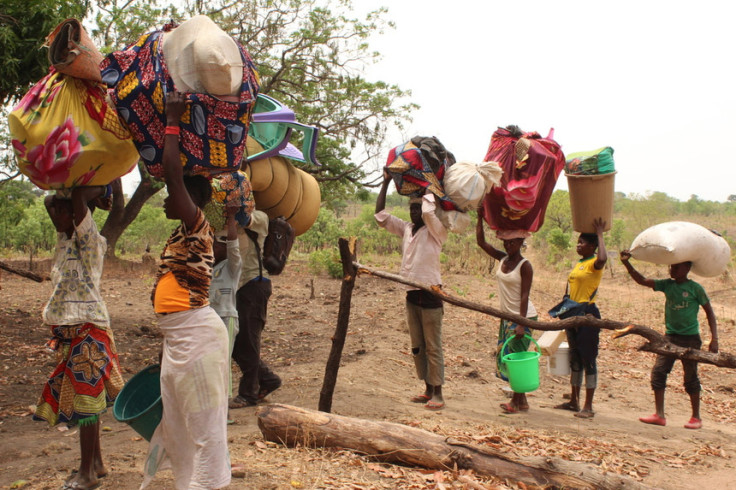Thousands of sexual and gender-based violence cases among Chad refugees worries UNHCR
20% of all cases of SGBV committed against girls under 18, UNHCR said.

The United Nations refugee agency (UNHCR) has expressed concerns after recording thousands of cases of sexual and gender-based violence (SGBV) among the refugees in Chad during 2016.
As at 31 December last year, Chad hosted a total of 393,161 Sudanese, Central African, Nigerian, Congolese and other nationalities in 19 camps.
Who are Chad's refugees?
- 312,000 Sudanese in the East (79.4%)
- 71,000 Central Africans in the South (17.9%)
- 8,600 Nigerians in the Lake Region (2.1%),
- 298 Congolese DRC (0.07%)
- 1.069 of other nationalities (0.2%).
- 58.54% Children aged 0 to 17 years
- 55.88% are female
In its latest report, UNHCR and its partners documented 1247 cases of SGBV in 2016, out of which 95% are female and 20.4% under 18.
Rape, exploitation and sexual assault account for 14.9% of all SGBV cases recorded last year. 95% of victims are refugee girls and women.
With at least 65 cases (a third of SGBV cases among girls) reported mainly among Sudanese and Central African refugees, child marriage is the first most reported violence among young girls. This is despite the 2015 promulgation of the legal provisions prohibiting child marriage in Chad.
However, the agency said these figures are likely to be an underestimate, due to underlying socio-cultural norms.
Despite a slight decrease in the number of incidents in 2016 compared to 2015, "the overall situation of sexual and gender-based violence remains a major concern despite the various interventions," the UNHCR said in its report.
The UN agency noted a downward trend in cases of female genital mutilation (1.2% of all SGBVs identified) likely related to stepped up efforts to monitor, counter and raise awareness about the practice.
Challenges identified with regard to the response to these incidents included access to adequate security and confidentiality of the victims, access to legal and psycho-social services provided to victims.
Thus, only 1.28% of victims in need of safe houses had access to the service, 6.49% of victims had access to legal services, 26.06% were attended to by the police, 30.15% had access to material support,39.69% consulted for medical care and 78.9% consulted the psycho-social services.
"Since the development of the five-year strategy for the effective fight against SGBV, UNHCR and partners have exerted much effort in the camps despite the financial and material challenges as well as the lack of qualified manpower," UNHCR said in its report.
According to UNHCR's Chad bureau, the persistence of certain SGBV incidents is linked to socio-economic conditions, the dearth of education opportunities, cultural norms and taboos and the misinterpretation of certain religious and legal texts in Chad.
© Copyright IBTimes 2025. All rights reserved.






















